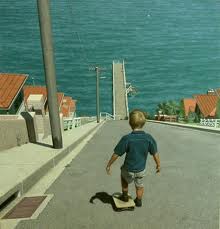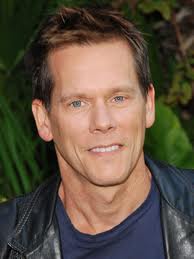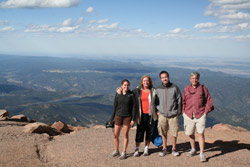Feb
14
2011

I’m not a mystic, but what I am about to tell you is the true story of Jim Hathaway, a crotchety old editor who found a way to give me the exact writing advice I needed, at the critical moment — and even better — several years after he was dead and buried. Given Jim’s strength of will, I doubt even cremation would have stopped him.
Jim was a member of The Lafayette Park Writers, a critique group of retired editors, columnists, English professors, novelists, and one traveling actress. Each week they met in a city parks and rec building and enthusiastically welcomed each newbie who fell in off the street. Each of the core members was experienced and nurturing, and each in his own right could have lit up Sin City on the sheer strength of his personality and charm. But even in that group, Jim stood out.
Tall, svelte, and mostly bald, Jim wore double-knit pants and white shoes. He had a pugnacious delivery, a voice like a cheese grater, and in spite of his liver-spotted skin and huge ears, blue eyes as round and eager as any eight-year-old boy’s. I admired a lot about Jim, but the quality I most respected was his life-long elasticity, his willingness to reinvent his skills, his writing, and himself with each new physical challenge or technical advance placed before him. In writing and in life you could always spot Jim; he was the barefoot, shirtless boy skateboarding fearlessly down Breakneck Hill.
Continue reading
10 comments | tags: actress, address, Breakneck Hill, business, cardinal, cat, char, cheese grater, columnist, comfort, copyright, cremation, crisis, critique, daughter, double-knit, editor, elastic, English professor, essay, family, fiction, film, final draft, funeral, ghost, grief, in-laws, infancy, Lafayette Park, linoleum, liver spots, mailbox, mentor, mother, mystic, novelist, paper, pen, personality, physical challenge, poem, priest, reinvent, revelation, short story, sign of the cross, Sin City, skill, suicide, supernatural, teacher, technical advance, technique, white shoes, will, writing, writing advice | posted in On Writing
Feb
7
2011

Growing up in my family, attendance at school was merely a suggestion, which is odd because my grandmother founded and ran one. But year after year of report cards reflect this; I never missed fewer than 30 school days a year. My family’s not much into structure.
Instead, I stayed home and wrote poetry or painted portraits, picked blackberries, devoured books. More importantly, I sat at the feet of some powerfully gifted storytellers and listened so hard I forgot to blink. It’s no way to raise an accountant, but it is a fine way to raise a writer.
No doubt an FMRI would confirm that the math side of my brain is the size of a pea. Looking back, it’s pretty obvious it died of starvation while I was busy stuffing the creative side with cake. I never memorized the multiplication tables, or the capital of Macedonia, but for six years I did quite intently study plies and pas de bourrees while wearing a variety of black leotards and pink tights. Each Tuesday for nine years I climbed the five steps to Miss Varnedoe’s front porch to practice arpeggios and glissandos on one of two antique grand pianos in her drawing room. Of course the heady possibilities of a box of Crayola 64 led inevitably to twelve years of easels and oil paints, copper etchings and acid baths, and a number of interesting scars accumulated while carving woodblocks.
Oddly, at no point did I consider taking a creative writing course because I knew for a certainty I wasn’t a writer. Never mind I was obsessed with scribbling terrible poetry in the margins of my elementary school notebooks, losing middle school boyfriends for sending them (and I quote) “A freaking fourteen page letter about a typing class,” editing my high school newspaper, winning a couple writing contests, and practically being begged by my college English professors to switch my major from art to writing. Had they lost their minds? I couldn’t write. Writers had imagination. Quick repartee. They could drink more than a sip of wine and hold it.
I finally figured it out the year I turned forty. That’s right. Four decades. Four X ten. For those of you who don’t know how the writing business works, this is even worse than you think. Writer years are briefer than dog years. By the time I’d climbed off the dunce stool and taken off the funny hat, I was the writing equivalent of liver-spotted, toothless and bald.
Would I like to have those decades back?
Of course.
Do I think they were wasted?
Not one bit.
Because any honest writer will tell you: every piece of fiction is true.
Continue reading
20 comments | tags: age, age and writing, arabesque, arpeggios, ballet, blackberries, books, camellias, creative writing, creativity, easel, etching, fiction, FMRI, glissandos, grand piano, hobbies, imagination, interests, learning, Nature vs. Nurture, oil paint, painting, paintings, pas de bourrees, piano, pirouette, plies, portraits, reading, sculpture, storytellers, study, the arts, travel, writing | posted in On Writing
Feb
1
2011
 Listen to fiction writers describe how we work, and you’ll think we’re all Rokus — those small black boxes that sit on your entertainment center and stream programs from the internet to your TV. Most writers will say we sit at our keyboards and type chapters that flow through our heads like scenes in a movie. This sounds easy, but it isn’t. To get to that point takes hard work.
Listen to fiction writers describe how we work, and you’ll think we’re all Rokus — those small black boxes that sit on your entertainment center and stream programs from the internet to your TV. Most writers will say we sit at our keyboards and type chapters that flow through our heads like scenes in a movie. This sounds easy, but it isn’t. To get to that point takes hard work.
And after we’re done with all the plotting and dialogue, description and pace, our protagonists still need to live and breathe. For this to occur, we must know them well. Authors build their characters in many ways – we cut out pictures of interesting faces, write in-depth histories we’ll never use, poke through our characters’ pockets, their closets, their refrigerators, create lists of hobbies and musical tastes.
Often we come to know our characters better than ourselves, but even then, we aren’t done. There is one more step we must take. For our character and her story to become as vivid for the reader as they are for ourselves, we have to convince the reader to climb inside our protagonist’s head. Continue reading
10 comments | tags: building characters, character, creating vivid characters, degrees of separation, fiction, involving your reader, Kevin Bacon, protagonist, reader experience, Roku, scene, thriller, writing, writing advice | posted in On Writing
Jan
25
2011

Kathleen, Leigh, Matt, and Jim Muller on the top of Pike's Peak.
I am a wife, a mother, a daughter, a friend. I think I may be a writer, but I am too afraid to voice those words. I have nothing to go on, only a feeling, some terrible poems I wrote in sixth grade, a few decent essays in high school and college, and again, this tug to pick up a pen and write.
Perhaps even stronger than my need to write is the responsibility I feel as that wife, mother, daughter, friend. Writing takes hours a day; when I’m not physically putting down words, I am writing them in my head. What starts out as a tug turns into an embrace and I don’t feel I can be this selfish with my time.
So everything else, everyone else, comes first.
But at 2 am, the feeling isn’t a tug; it’s a drill sergeant shaking me awake. Characters flick on the overhead light in my brain and I can no longer sleep for the glare and the noise. They grab my hands and pull. Careful not to wake my husband, I slip out of bed and take a legal pad and pen downstairs. A couple of hours later, I have the beginning of a novel.
Continue reading
35 comments | tags: essay, inspiration, leap of faith, literary agent, manuscript, novel, publication, query, support, writing | posted in On Writing
Jan
18
2011

When I first started my novel, I thought the keys to a good thriller were plotting and pace. Since both of these are my strong points, I felt I was set. I wrote the first scene and immediately realized I was wrong.
The scene had action and dialogue, a murder, a twist, but still, it felt dry and skeletal. In reading it over, I began to understand that the least interesting thing about a book is what the characters do. Why they do what they do is much more intriguing, and more fascinating still is how they are feeling when they do it.
Continue reading
10 comments | tags: building characters, character, characterization, compelling characters, creating the everyday, editing, fiction, plotting, writing, writing the everyday moment | posted in On Writing
Jan
18
2011

One by one we come to the door and step in. We’re a motley crew, writers of children’s books, thrillers, southern literary, historical romance. Most of us are southern to the bone, but one of us was born in New Jersey and a couple root for the Red Sox. We don’t agree on much, and that’s the point; one writer’s weakness is another one’s strength. We gather each Wednesday, sometimes as writer, sometimes as editor, and we cut and expand and sharpen and deepen until we’ve done all we need to carry on another week.
What we don’t do is gloss over our critiques. We are writers; we are committed; it is our business. But our conference room is also a kitchen table, so while it’s been the scene of sharp disagreements, it’s also seen its share of hands reached across the table and clasped tight. Writing is like that; you get to know each other quickly and deeply. As Adrian says, it is a naked business.
Continue reading
no comments | tags: business, camaraderie, children's books, committed, compounding knowledge, conference, critique group, dialogue, editing, editor, emotional depth, friends, historical romance, language, pace, plot structure, Red Sox, respect, solitary, southern, southern literary, strength, support, telling detail, thrillers, trust, weakness, whimsy, wit, writer, writing | posted in On Writing





